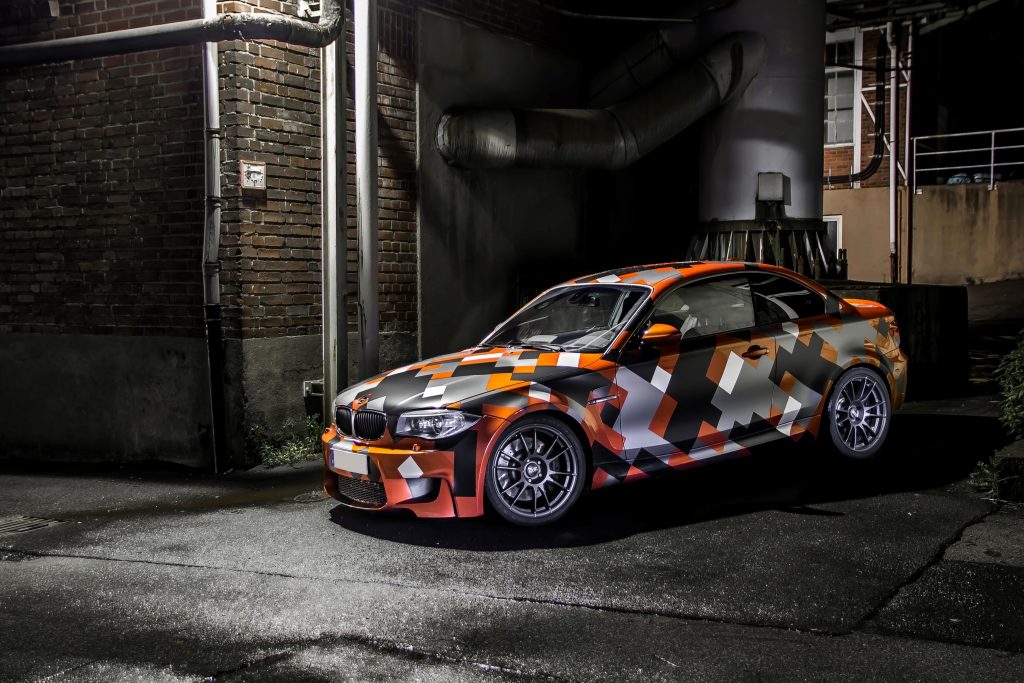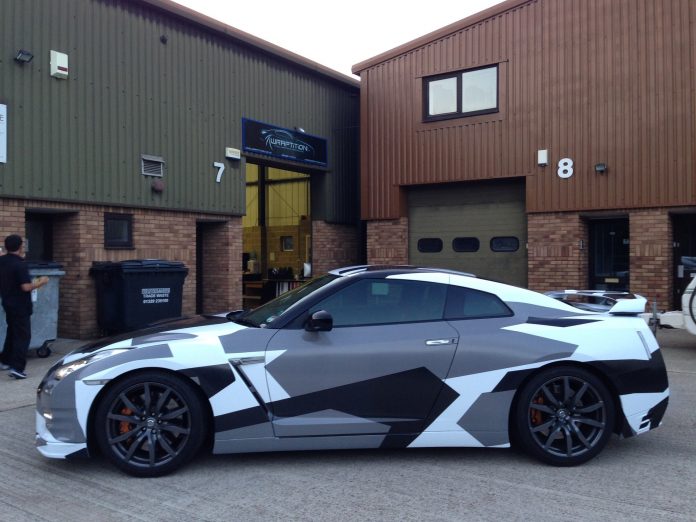Car wrapping is the process of using matte finish vinyl and paints to transform the appearance of your vehicle. Unlike conventional paint or decals, wraps give you the freedom to change the design as often as you like, with little cost or commitment. Car wraps also protect your car from minor scratches and rock chips.
Professional car wrapping will allow you to create new designs for every season, holiday, or special event, on various substrates, not just paint. It’s an art that combines elements of graphic design and illustration with technical craftsmanship. A good installer can make even an old beater look like a million bucks (and turn the heat down on hot summer days).
Material used for car wrap:
Wraps and graphics are usually made from materials including vinyl, paint, fabric, and leather.
Because they are flexible, wraps can be applied to nearly any smooth surface, cars, of course, but also boats, motorcycles, and even planes.
Why car wrap is important?
So why would you want your vehicle wrapped? A car wrap makes it easy for you to change the look of your car whenever you like. They’re perfect if you travel in more than one social circle or work at more than one job site because they allow folks with different lifestyles or professions to enjoy the same ride. Another benefit is that by eliminating the need for expensive paint jobs, wraps save time and money…and when was the last time anyone said no to that?
Read More: What Is Motorcycle Towing? Best Methods To Towing a Motorcycle
Car Wrap and personality
Wraps are also a great way to add personality to your ride, especially if you have a boring daily driver. It’s estimated that the average person spends upwards of 500 hours in their car each year, why not make it look fabulous?
Car wraps range from inexpensive films designed to help protect your paint job from rock chips and scratches while adding a creative flair to your ride, all the way up to high-definition movies with vast amounts of detail. They’re also available in a wide array of colors and can be easily installed or removed without causing damage.
Read More:
How does a car wrap work?
So, could a wrap be suitable for you? If your ride gets regular exposure at night, is parked on the street, sees lots of action during the day, or has been wrapped before, it might be a great candidate.
To ensure that your vehicle can be wrapped, you should consult a professional installer and see if the following conditions apply:

Point to take care, before car wrap
Car material
Can the material adhere to the type of paint used on your car?
Surface Temperature of the car
Does your car have an extremely low or high surface temperature? Wraps are designed for everyday road temperatures between 40°F and 100°F (5°C and 38°C). In icy areas, wraps need special vinyl with improved elasticity. In hot regions, they must use “heat-reflective” materials to keep cars from overheating. All this adds extra expense.
Important information after car wrap decision has been made:
In case you decide to wrap your ride: Here’s what you need to know:
Factory Paint Job
Make sure you’re getting a factory paint job, not a printed sticker. A good installer will produce results that look like they were done at the factory.
High-quality vinyl with a matte finish
When choosing an installer, make sure he uses high-quality vinyl with a matte finish and lots of elasticity to prevent peeling.
Company Experience and Warranty provided
Ask how long the company has been in business and whether it specializes in car wraps or graphics. Make sure the material is warranted against fading for at least two years.
Color-coordinated films
Be sure to choose color-coordinated films, so your wrapped car doesn’t look tacky (no pink flames on an otherwise black vehicle). Also, consider using silk-screened images instead of stickers. Silk screening allows better detail than printing on vinyl with inkjet printers because it.
Conclusion
A car’s paintwork is frequently harmed by road hazards or fades with time. Vehicle coverings preserve the paint. The car’s bodywork is given an additional layer of protection by a vehicle wrap, which also helps maintain the car’s retail value. Simple to replace – A wrap may occasionally become scraped, harmed, or ripped.
FAQs
Conclusion:
Wrapping your car can be a great way to save money and enjoy personalization with minimal effort or commitment. However, if you’re going to have a wrap done, keep in mind that it’s not as durable or resistant as paint – so don’t treat it like a permanent solution!
















